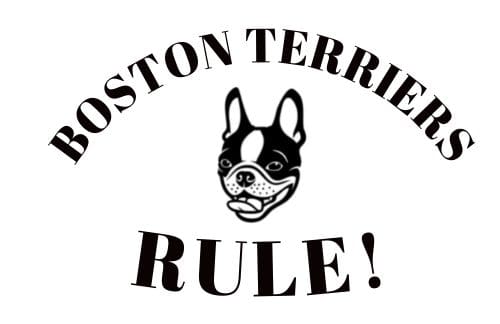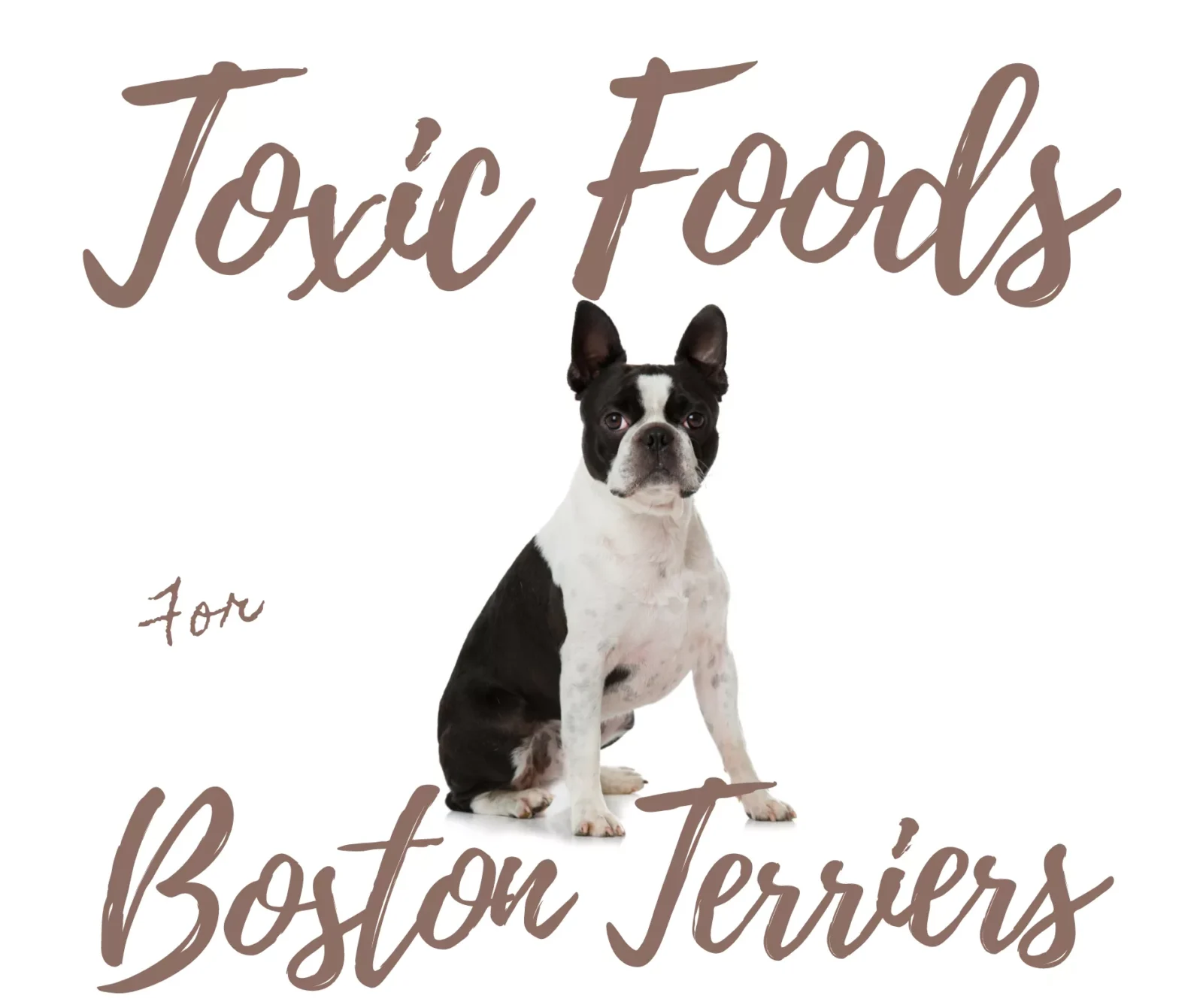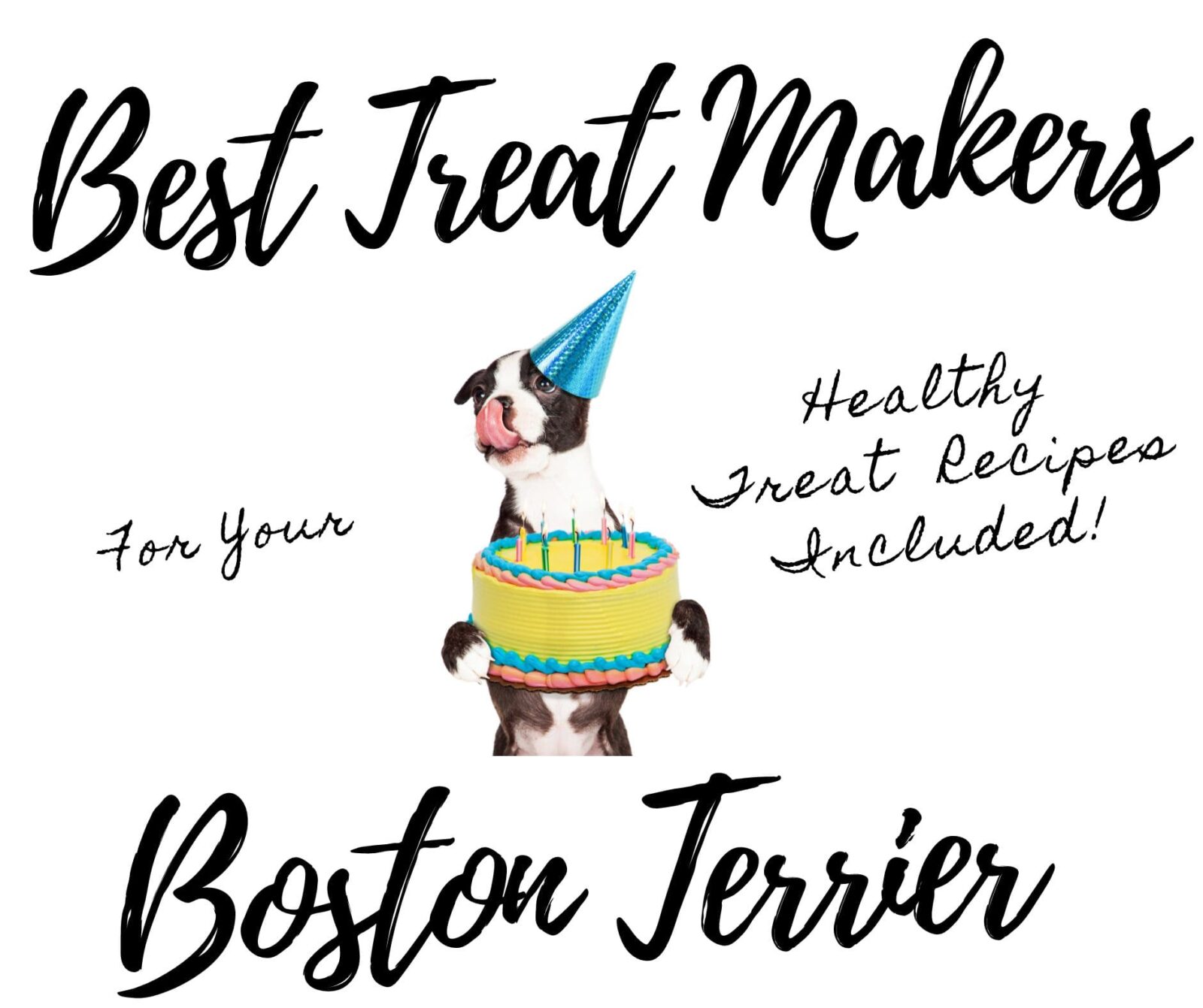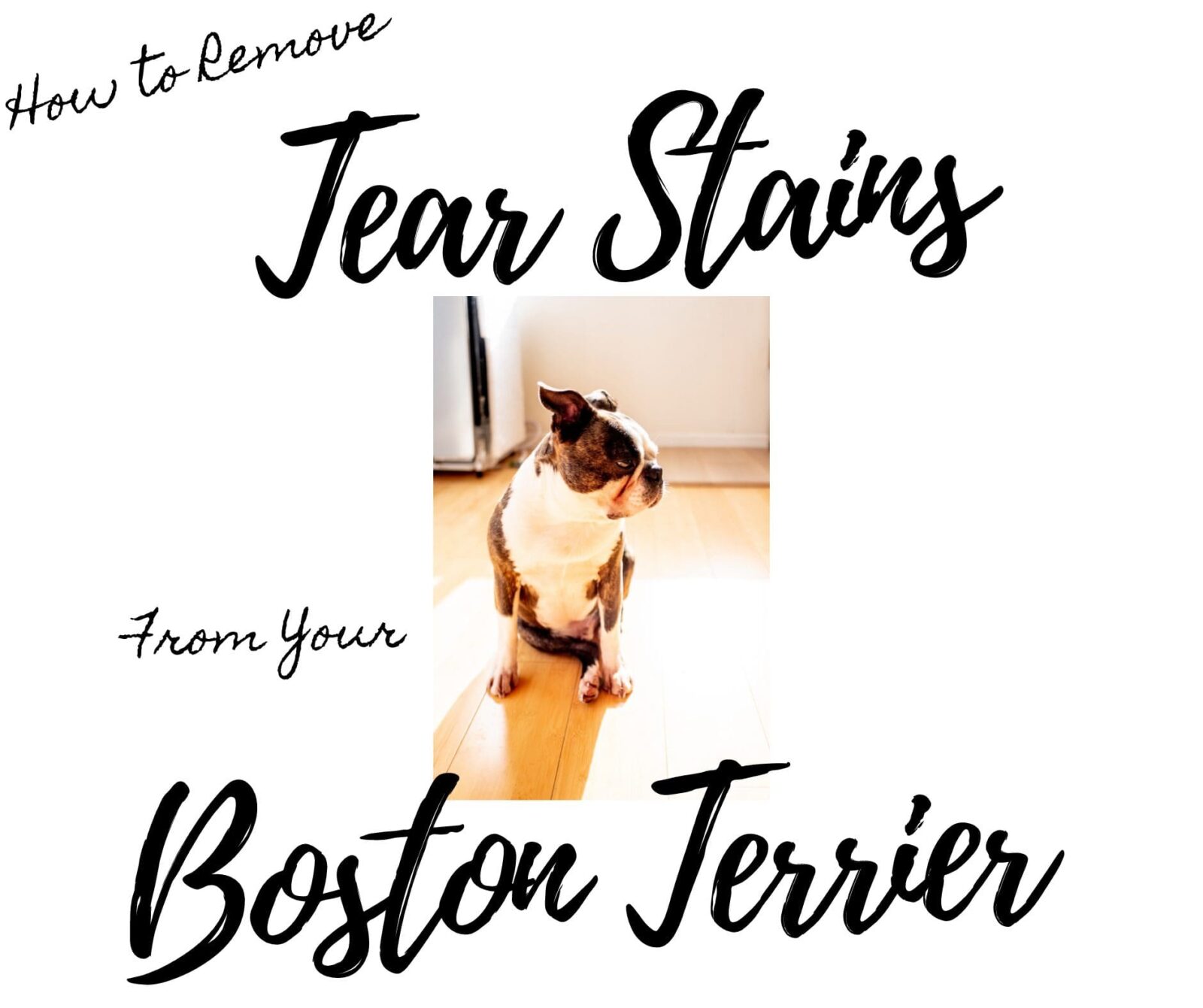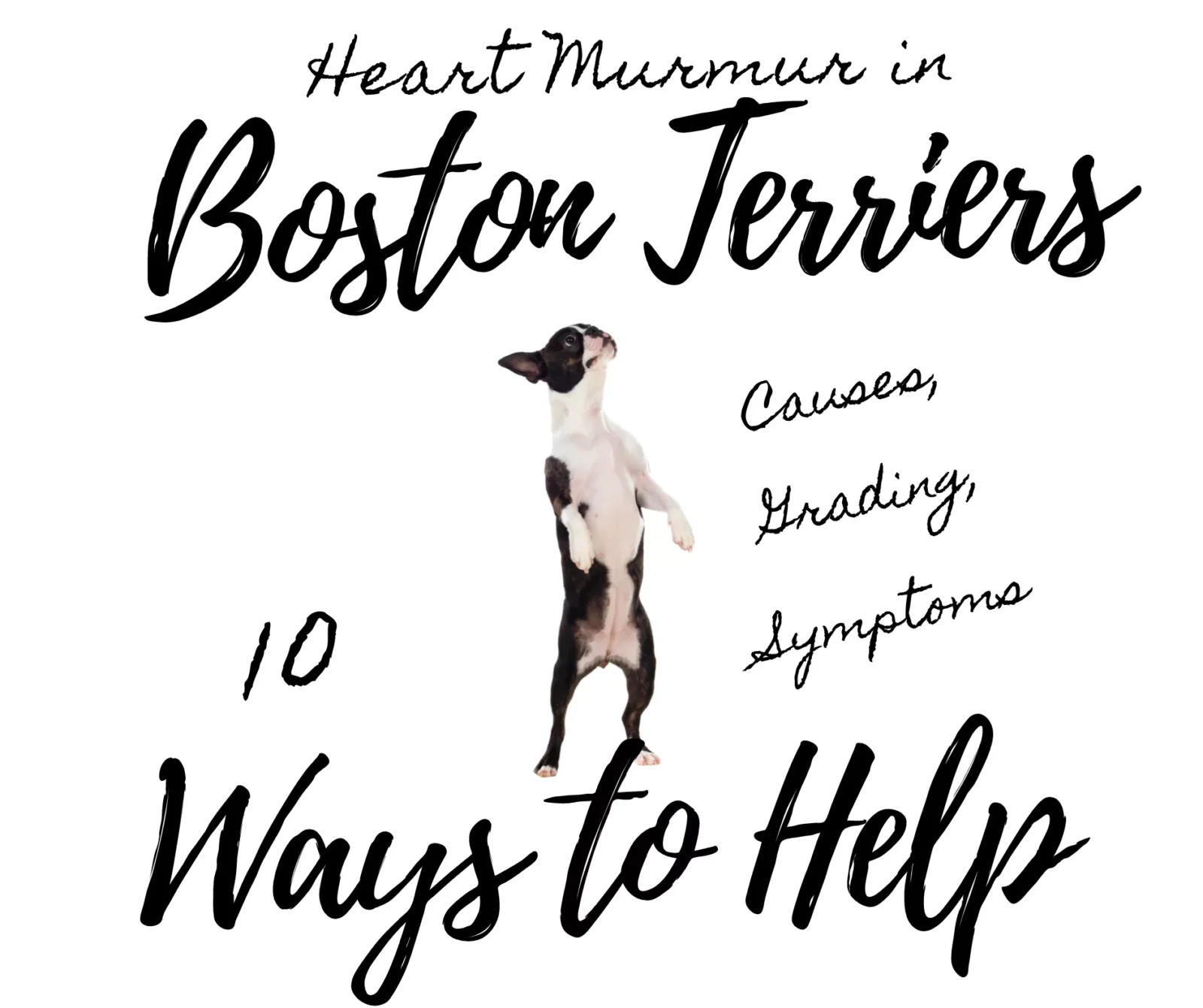Introduction
After my own close call with toxic food and my beloved Boston Terrier, I’m sharing the 11 worst offenders and the steps I took to keep her safe. Learn from my experience and protect your Bostie.
Boston Terriers are adorable pups that can happily chow down on a well-balanced diet, but there are certain foods that can seriously dangerous if they consume them. It’s crucial for every Boston Terrier owner to be aware of these potentially toxic items and keep them well out of paw’s reach of their beloved pups. In this post, I discuss the top 11 most toxic and dangerous foods for your Boston Terrier as well as an actionable checklist if they do eat any of them.
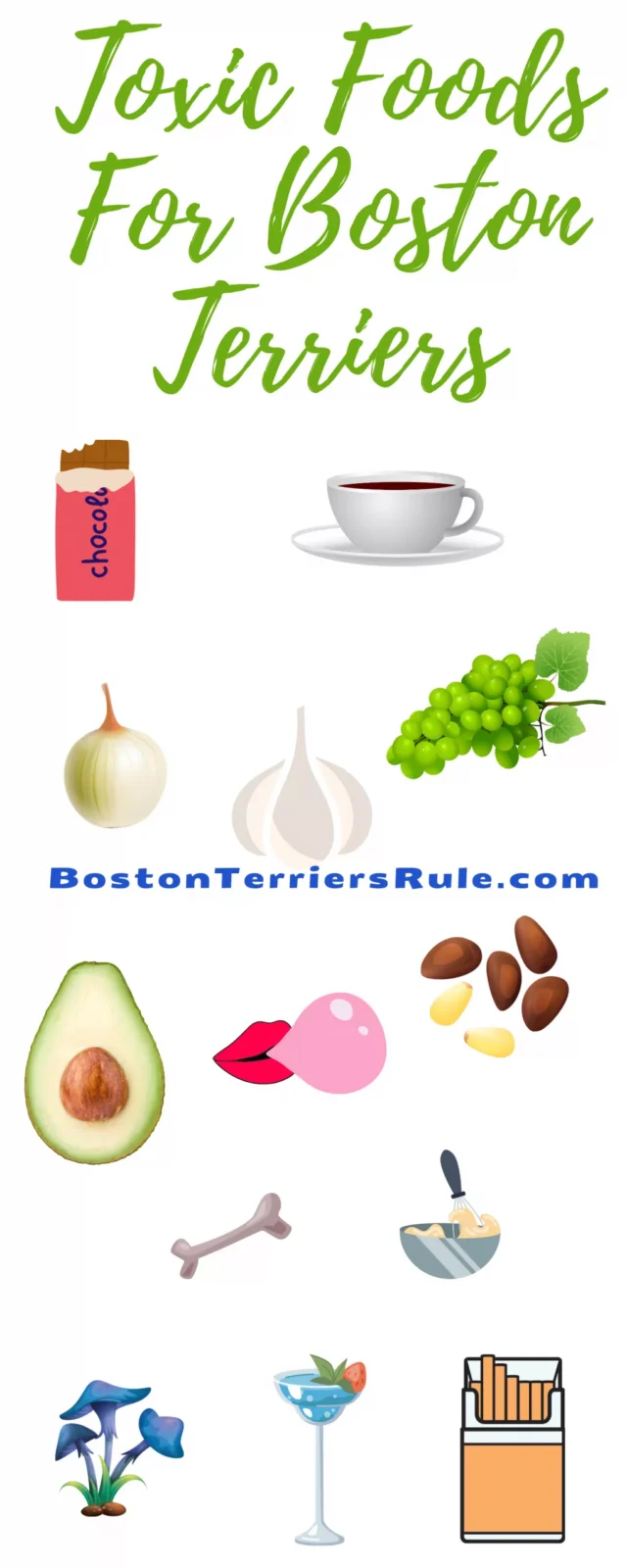
The Top 11 Toxic, Dangerous Foods for Boston Terriers:
- Chocolate and Caffeinated Treats:
This one’s a no-brainer. Chocolate contains theobromine, a stimulant that can be toxic to dogs, affecting their heart, nervous system, and muscles. Even small amounts can be dangerous, so keep those brownies and lattes far away from your curious pup.
2. Grapes and Raisins:
These seemingly harmless fruits can trigger kidney failure in dogs, even in small quantities. The exact toxin remains unknown, but the risk is too great to justify giving your Boston Terrier a taste.
3. Onions and Garlic:
These kitchen staples contain compounds that damage red blood cells in dogs, leading to anemia. Even cooked onions and garlic can be harmful, so be mindful of any scraps that might fall on the floor.
4. Macadamia Nuts:
While not as well-known as other dog toxins, macadamia nuts can cause muscle tremors, weakness, and vomiting in Boston Terriers. It’s best to stick to dog-safe treats like peanut butter or carrots.
5. Avocado:
While the tasty flesh of the avocado is generally safe for humans, the pit and skin contain persin, a toxin that can cause vomiting, diarrhea, and difficulty breathing in dogs. Keep those avocado pits far out of reach!
6. Xylitol:
This artificial sweetener often found in sugar-free gums and candies is extremely toxic to dogs. Even small amounts can cause a rapid drop in blood sugar, leading to seizures, liver failure, and even death. Be extra cautious when choosing treats and check the ingredients list for xylitol.
7. Dough:
Uncooked dough containing yeast can rise in your dog’s stomach, causing painful bloating and gas. Additionally, the alcohol produced by the yeast can lead to intoxication. Keep your bread dough well-covered and out of paw’s reach.
8. Mushrooms
Many wild mushroom varieties are poisonous to dogs, and even some cultivated mushrooms can cause digestive upset. Unless you’re a mushroom expert, it’s best to avoid giving your Boston Terrier any type of mushroom.
9. Bones:
While gnawing on a bone might seem like a natural canine instinct, cooked bones can splinter and cause internal injuries. Opt for safe alternatives like nylon or rubber chew toys to satisfy your Boston Terrier’s chewing needs.
10. Alcohol and Tobacco:
These human vices are strictly off-limits for dogs. Alcohol can cause intoxication, coma, and even death, while tobacco can lead to nicotine poisoning and respiratory problems. Keep your Boston Terrier safe by storing these substances securely.
11. Human Medications:
Over-the-counter and prescription medications can be deadly for dogs if ingested. Keep all medications out of reach and store them securely in cabinets or high shelves.
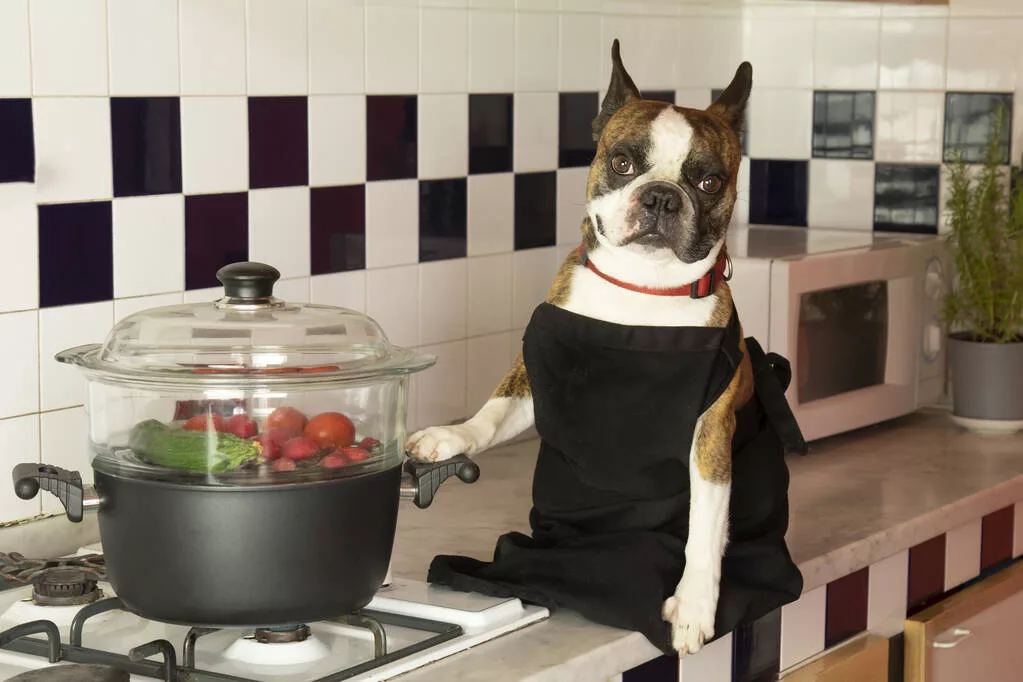
What to Do if You Suspect Your Dog Has Eaten Toxic Foods
If you suspect your Boston Terrier has ingested any of these dangerous foods, contact your veterinarian immediately. Early intervention can make a significant difference in their recovery.
When in doubt, it’s always best to err on the side of caution and stick to dog-safe foods and treats.
Educate your family and friends about these dangerous foods to ensure your Boston Terrier’s safety.
By being aware of these potential dangers and taking proper precautions, you can help your Boston Terrier live a long, healthy, and happy life. After all, they’re our furry family members, and keeping them safe is our top priority!
Bonus Tip: Invest in a pet-proof trash can and keep it in a secure location. This will help prevent your Boston Terrier from scavenging for scraps that could be harmful.

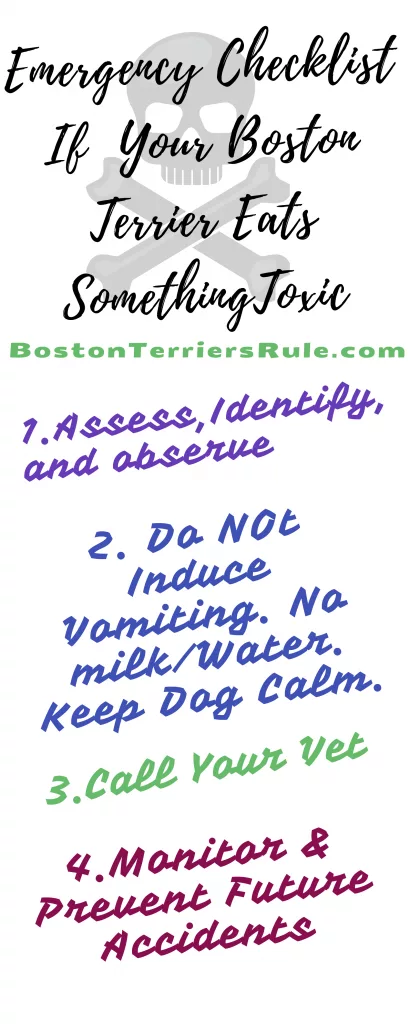
Quick Action Checklist: When Your Boston Terrier Eats Something Dangerous
While contacting your veterinarian is always the first and most crucial step when you suspect your Boston Terrier has eaten something dangerous, time can be critical. Here’s a quick action checklist to guide you through those crucial moments:
- Assess the situation:
Identify the toxin: If possible, determine what your dog might have ingested. Look for clues like wrappers, containers, or remnants around the house. Knowing the specific toxin helps the vet administer the most effective treatment.
Observe your dog: Monitor your Boston Terrier for any signs of illness. Common symptoms of poisoning include vomiting, diarrhea, lethargy, tremors, seizures, difficulty breathing, excessive drooling, or abnormal pupil size.
Gather information: Note the time of ingestion, the estimated amount consumed, and your dog’s weight and age. This information is crucial for the vet to calculate the potential severity and tailor the treatment plan.
- Immediate actions:
Prevent further ingestion: Secure the area and remove any remaining traces of the toxin to prevent further consumption.
Do not induce vomiting: This can sometimes worsen the situation, depending on the toxin. Contact your vet for guidance on whether vomiting is recommended in your specific case.
Do not give milk or water: Unless instructed by your vet, avoid giving your dog any liquids, as it can spread the toxin further or interfere with treatment.
Keep your dog calm and comfortable: Reduce stress and anxiety by staying calm yourself and minimizing movement.
- Contacting the vet:
Call your veterinarian immediately: Time is of the essence in these situations. Explain the situation clearly and concisely, providing all the information you’ve gathered.
Alternatively, call a poison control center: If your vet is unavailable, reach out to a pet poison control center for immediate advice. The ASPCA Animal Poison Control Center is available 24/7 at (888) 426-4435.
Follow their instructions: The vet or poison control center will guide you through the next steps, which may include inducing vomiting, administering activated charcoal, or providing other specific treatments based on the toxin ingested.
- Monitoring and aftercare:
Keep your dog monitored: Even after seeking professional help, continue to monitor your dog closely for any new or worsening symptoms.
Follow the vet’s instructions: Administer any prescribed medication or follow any additional care recommendations provided by the vet.
Prevent future incidents: Learn from this experience and implement preventative measures to ensure your Boston Terrier’s safety. This could include storing toxic substances securely, keeping trash cans inaccessible, and supervising your dog closely during mealtimes and playtime.
Remember:
Every situation is unique, and the specific steps will vary depending on the toxin ingested and your dog’s individual condition.
Always prioritize contacting your veterinarian or a poison control center immediately.
Remain calm and act quickly to give your Boston Terrier the best chance of recovery.
By being prepared and taking swift action, you can navigate this stressful situation with clarity and minimize the potential harm to your beloved Boston Terrier. Remember, their health and well-being are your top priority.
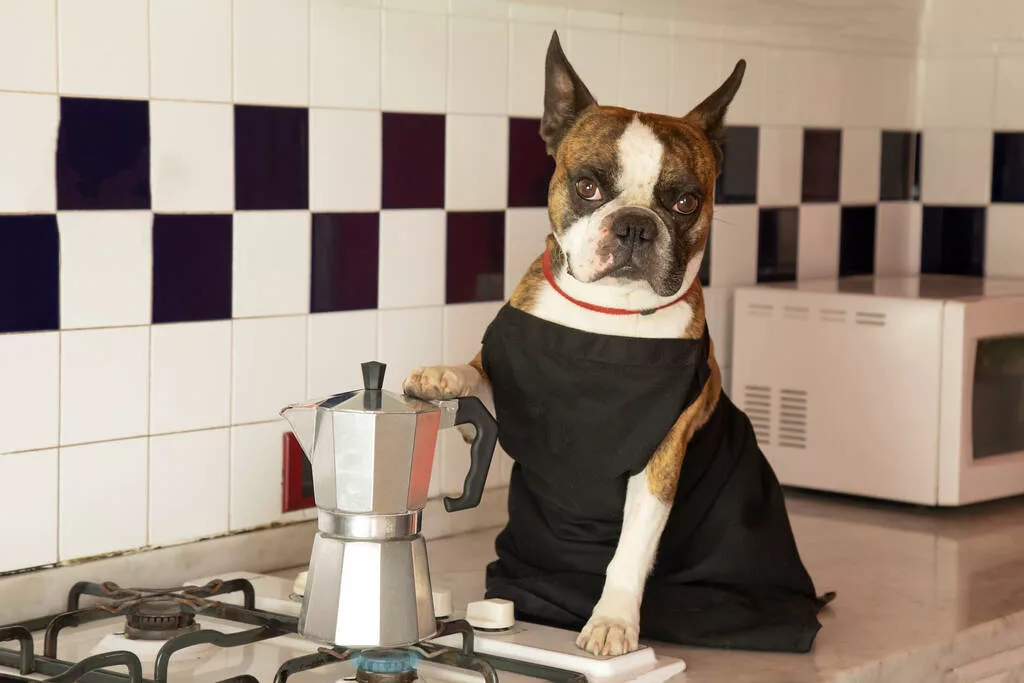
Keeping Your Boston Terrier Safe from Toxic Foods
Boston Terriers, with their mischievous smiles and insatiable curiosity, can unwittingly get themselves into trouble, especially when it comes to food. Fortunately, with a little planning and proactive measures, you can create a safe haven for your furry friend and prevent them from encountering potentially toxic treats.
- Knowledge is Power:
Educate yourself: Familiarize yourself with common household toxins that are dangerous for dogs, including chocolate, grapes, xylitol, onions, and medications as mentioned in this article. Keep a list of these items handy and make sure everyone in your household is aware of the risks.
Vet knowledge: Consult your veterinarian for a personalized list of foods specific to your Boston Terrier’s health conditions or potential allergies. Their expertise can offer tailored guidance to keep your pup safe.
- Create a Toxin-Free Zone:
Kitchen vigilance: Store human food securely in cabinets or high shelves away from your Boston Terrier’s reach. Use childproof latches on cabinets and pantry doors for added security.
Trash can fortress: Invest in a pet-proof trash can with a secure lid to prevent scavenging for hidden crumbs or wrappers. Keep the trash can in a gated area if necessary.
Garden gatekeeping: If you have a garden, be mindful of potentially toxic plants like lilies, azaleas, and oleander. Consider fencing off your garden or planting dog-safe alternatives.
Cleaning caution: Keep cleaning products, medications, and other household chemicals locked away or stored high above ground level. Avoid leaving cleaning supplies near the bathroom or kitchen sink, where they might be easily accessed.
- Manage Mealtimes and Playtime:
Dog-only dishes: Use separate bowls for your Boston Terrier’s food and water. Avoid giving them human plates or cups that might hold remnants of harmful foods.
Supervise snacking: During snack time, keep a close eye on your dog to ensure they’re not picking up dropped food items or stealing treats from unsuspecting hands.
Playtime precautions: Monitor your dog during playtime, especially outdoors. Be mindful of fallen fruit, discarded wrappers, or suspicious objects that might harbor hidden toxins.
Scent-proof training: Consider teaching your Boston Terrier the “leave it” or “drop it” command to discourage them from picking up unknown or potentially dangerous items.
- Safe Sniffing:
Designated chew zones: Provide your Boston Terrier with their own chew toys and treats made from safe materials like rubber, nylon, or rawhide. This satisfies their natural chewing instinct and diverts their attention from tempting non-edibles.
Interactive puzzles: Keep your dog’s mind and snout busy with food-dispensing puzzles or treat-hiding games. This provides mental stimulation and reduces boredom, decreasing the likelihood of scavenging for forbidden snacks.
Regular walks and playtime: Ensure your Boston Terrier gets plenty of exercise and mental stimulation through walks, playtime, and training sessions. A tired and engaged dog is less likely to wander or explore areas with potential hazards.
Prevention is key. By creating a safe environment and adopting proactive habits, you can significantly reduce the risk of your Boston Terrier encountering toxic foods.
Vigilance is crucial. Never underestimate your dog’s curiosity and sniffing skills. Stay alert and attentive to their whereabouts and activities.
Early intervention is essential. If you suspect your dog has ingested something toxic, act quickly and contact your veterinarian or animal poison control center immediately.
With a proactive approach and a vigilant eye, you can ensure your Boston Terrier enjoys a happy and healthy life, free from the dangers of tempting toxins. Remember, their safety is in your hands!

Remember:
Early intervention can make a significant difference in their recovery. When in doubt, it’s always best to err on the side of caution and stick to dog-safe foods and treats. Educate your family and friends about these dangerous foods to ensure your Boston Terrier’s safety. By being aware of these potential dangers and taking proper precautions, you can help your Boston Terrier live a long, healthy, and happy life. After all, they’re our furry family members, and keeping them safe is our top priority!
Bonus Tip 1: Invest in a pet-proof trash can and keep it in a secure location. This will help prevent your Boston Terrier from scavenging for scraps that could be harmful.With a little knowledge and vigilance, you can ensure your Boston Terrier enjoys a delicious and safe diet. Remember, a healthy and happy pup is a joy to have around!
Bonus Tip 2: Consider keeping an emergency pet first-aid kit readily available at home. This can contain items like activated charcoal, hydrogen peroxide (consult your vet for safe usage), and a muzzle (for situations where administering medication might be difficult).
With knowledge, preparedness, and swift action, you can be your Boston Terrier’s hero in their time of need. With a little knowledge and vigilance, you can ensure your Boston Terrier enjoys a delicious and safe diet. Remember, a healthy and happy pup is a joy to have around!
Before You Go…
Boston Terriers are part of our family and it’s only natural that we’d want to share everything with them, right?? Read my next article to find out about safe, healthy, human “Power Foods” (also referred to as ‘Super Foods”) that are safe for Boston Terriers to consume as well as offering significant health benefits.
What are Power Foods for Boston Terriers?

https://www.terrierowner.com/boston-terrier/things-boston-terriers-should-never-eat-dangerous-foods/
This post contains affiliate links. I earn from qualifying Amazon purchases.
